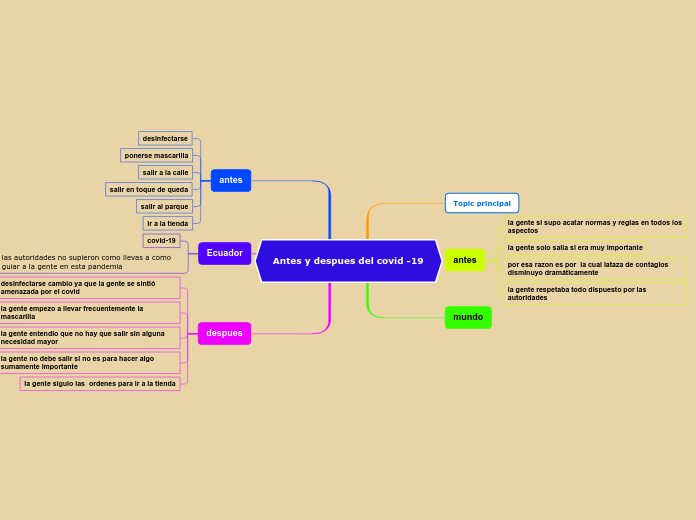作者:erick nieto 4 年以前
859
Antes y despues del covid -19

作者:erick nieto 4 年以前
859

更多类似内容
The part of speech is a category to which a word is assigned according to its syntactic functions. In English the main parts of speech are noun, pronoun, adjective, determiner, verb, adverb, preposition, conjunction, and interjection.
A preposition is one of the most exciting parts of grammar. A preposition is used to describe the location of something in relation to something else.
A group of words used with the force of a single preposition is called phrase preposition.
Participle preposition consists of words that end in “ing”.
When a preposition consists of more than one word, it is called double preposition.
Compound preposition consists of two or more words.
When a preposition consists of one word it is called single or simple preposition.
An interjection is used to express emotion in a sentence.
Think of other interjections!
An adverb is used to describe a verb, but it can also describe an adjective or another adverb.
Adverbs normally help paint a fuller picture by describing how something happens.
The intensifiers strengthen adverbs adjectives and adverbs and down- toners make them weaker.
An adjective is a word that's used to describe a specific noun and to provide more detail to the listener.
A verb is an action word or 'doing' word that signifies movement in some way.
A participle is a verb form that can be used as an adjective or to create a verb tense. There are two types of participles: Present participle (ending -ing) and Past participle (usually ending -ed, -d, -t, -en, or -n).
A modal is a type of auxiliary (helping) verb that is used to express: ability, possibility, permission or obligation. The main modal verbs in the English language are: can, could, may, might, must, shall, should, will, would.
A linking verb connects the subject with a word that gives information about the subject, such as a condition or relationship.
A verb with its own meaning: a verb that is not an auxiliary verb.